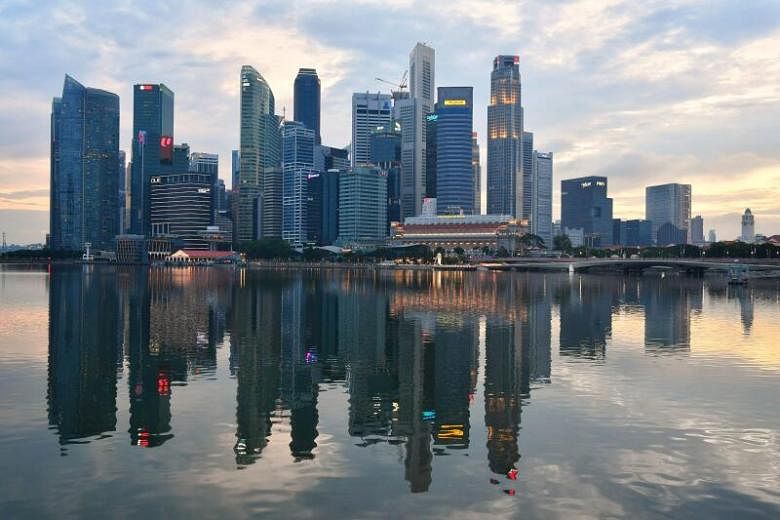SINGAPORE - The digital economy will feature prominently in Singapore's next five-year Research, Innovation and Enterprise (RIE) plan, with more funding set aside to develop this area, said Deputy Prime Minister Heng Swee Keat on Tuesday (Oct 27).
This will involve partnering companies to build up the country's tech talent pool as well as a renewed focus on cybersecurity as more transactions go online.
Speaking at the two-day Fortune Global Forum, Mr Heng noted that a significant portion of the $20 billion RIE2020 plan, which mapped out Singapore's research and development strategy from 2016 to 2020, was spent on digitalisation.
But under RIE2025, which is being finalised, even more money will go towards developing the digital economy, he said. "We do believe that this is going to be critical for the future."
Mr Heng was taking part in a dialogue on digital economies with Mr Anthony Tan, who is chief executive of ride-hailing firm Grab. Their discussion delved into such topics as the challenges of digital transformation and the potential for Singapore to connect with the wider world.
Mr Tan announced at the event that Grab would partner Microsoft on a series of training and development programmes for students, as well as Grab's drivers and delivery riders.
The aim is to help them grow their digital skillsets and improve their employability opportunities. It aims to reach out to a maximum of 5,000 drivers and delivery riders, and 250 tertiary students by the end of next year.
Speaking about the challenges of helping small businesses go digital, Mr Tan said Grab's experience working with farmers and wet market sellers in the region has shown it that doing so is not as simple as "giving them a phone... and let magic happen".
His company has provided such small business owners with tools to automatically correct photos of items for sale, and micro-loans that are typically not provided by traditional institutions.
"We need to create tools to help these small business attract customers, like real time data insights," he said. "We have to provide training (for) new skills - the old walk-in customer is going to be very different from our web online browser."
On a larger scale, the digital revolution also means countries have the opportunity to connect with each other more than ever before, Mr Heng added.
He gave the example of digital economy agreements, which Singapore has inked with countries such as New Zealand, Chile and Australia, and also spoke on improving cross-border data flows for financial services.
"The data that drives a lot of transactions, including the data on digital finance, on the flow of capital, is going to be critical," he said. "During a global financial crisis, trade came to a halt, because no one could trust anyone else... If we can do better cross-border data flow of financial services, you can allow for better risk and business decisions, and that would allow for trade to continue to flow."
Singapore is also upgrading its trade platforms and working with other countries on how digital technology can be used to better manage cities, Mr Heng added.
"Singapore is a city... it is globally connected.
"The more we can connect globally, and at the same time, transform locally, the more successful we can be, the more we can play a role in the global economy."


